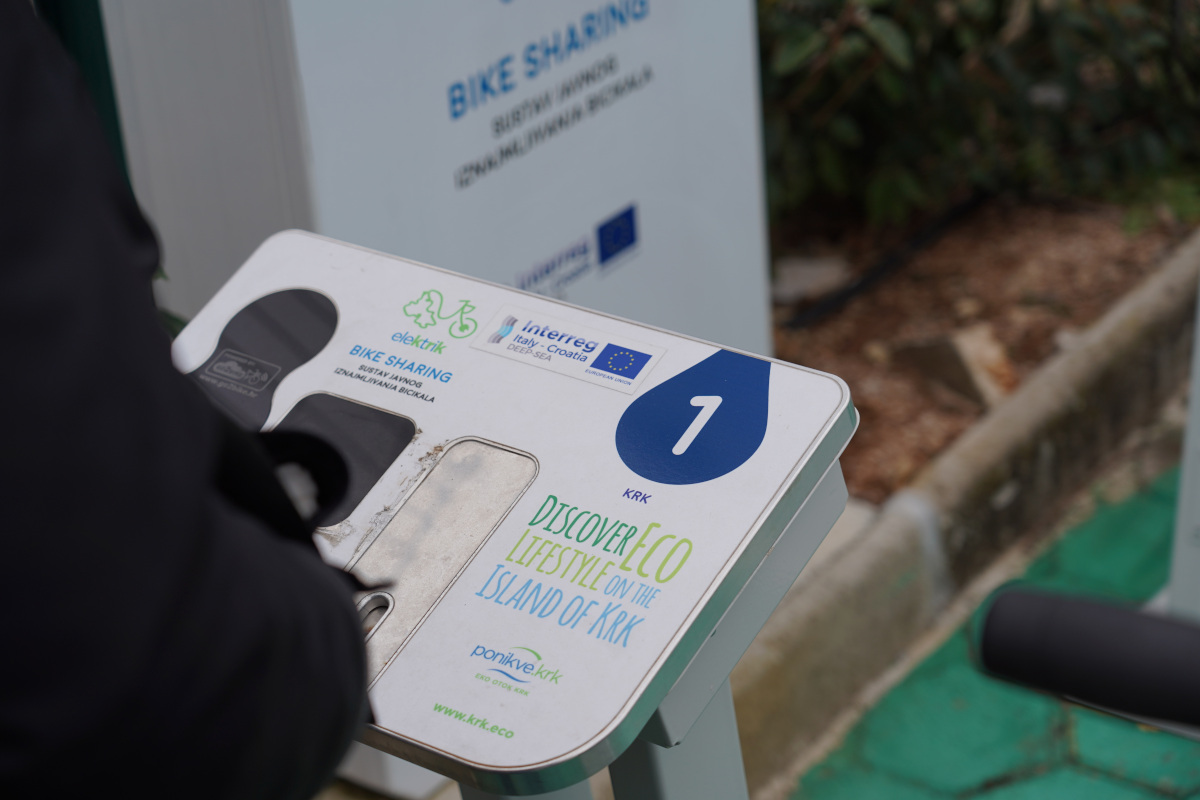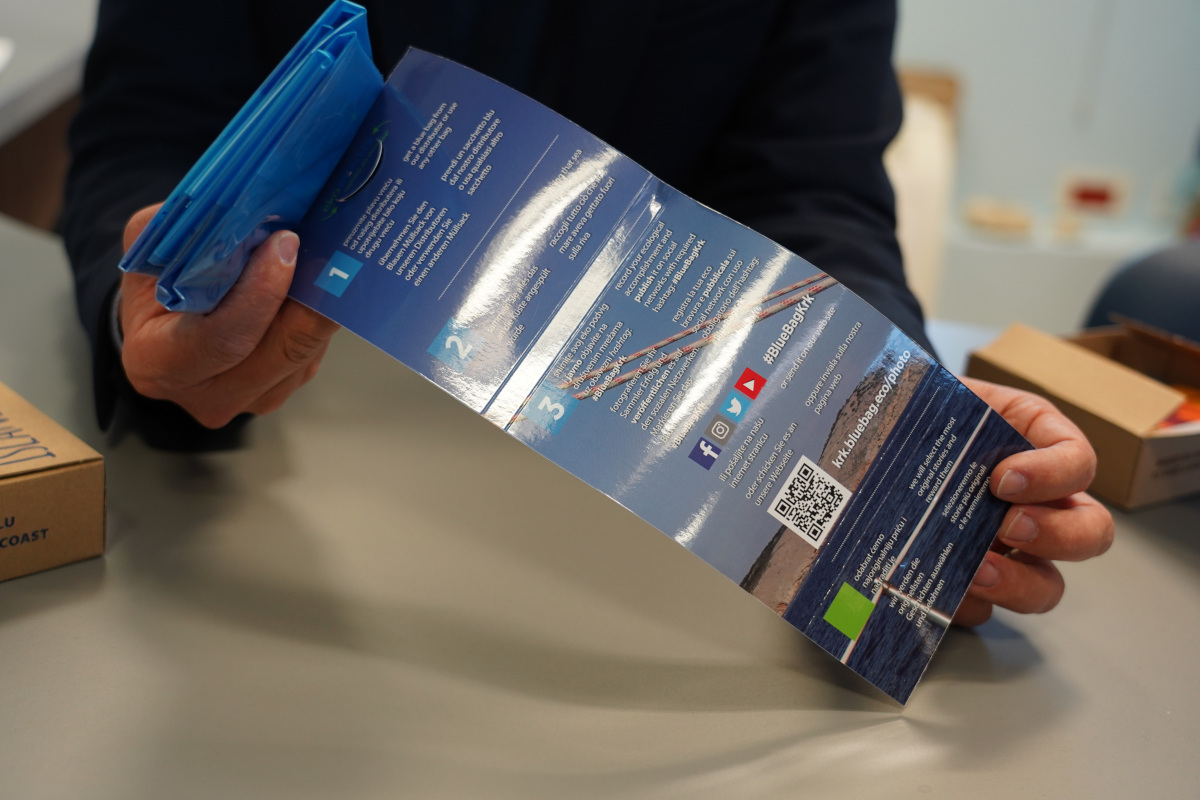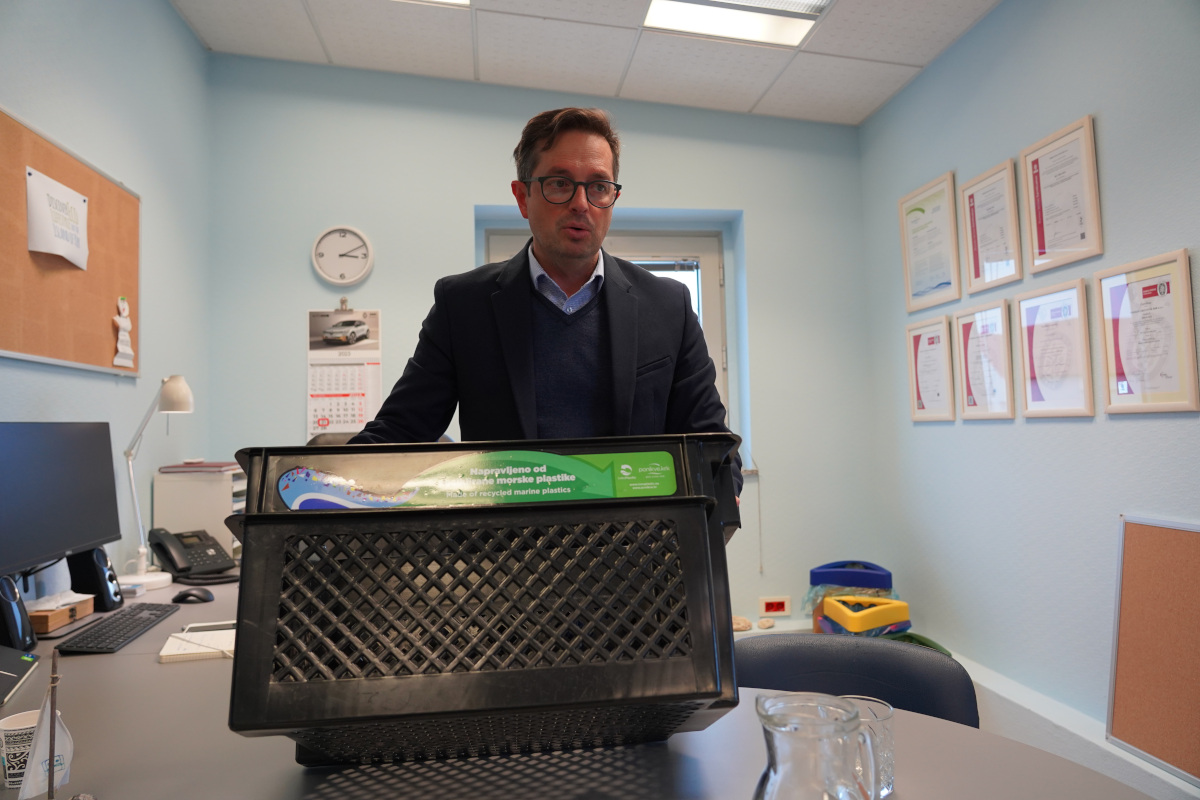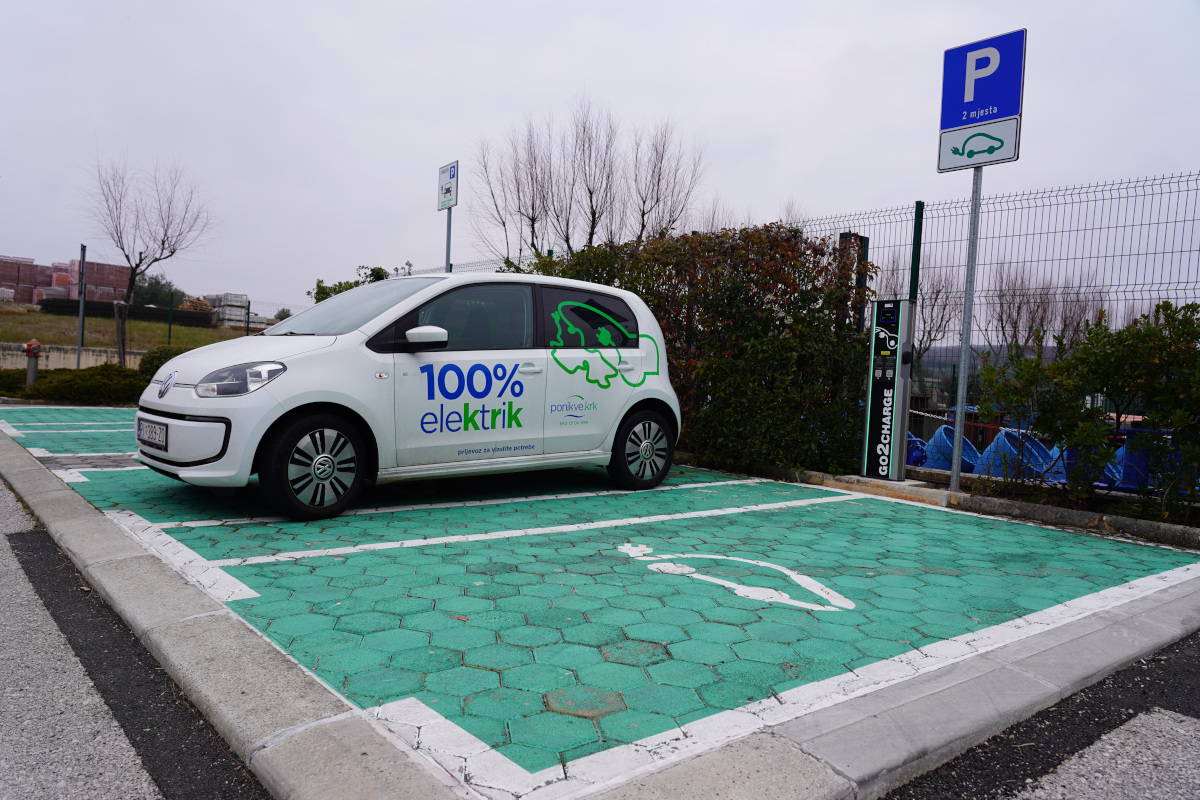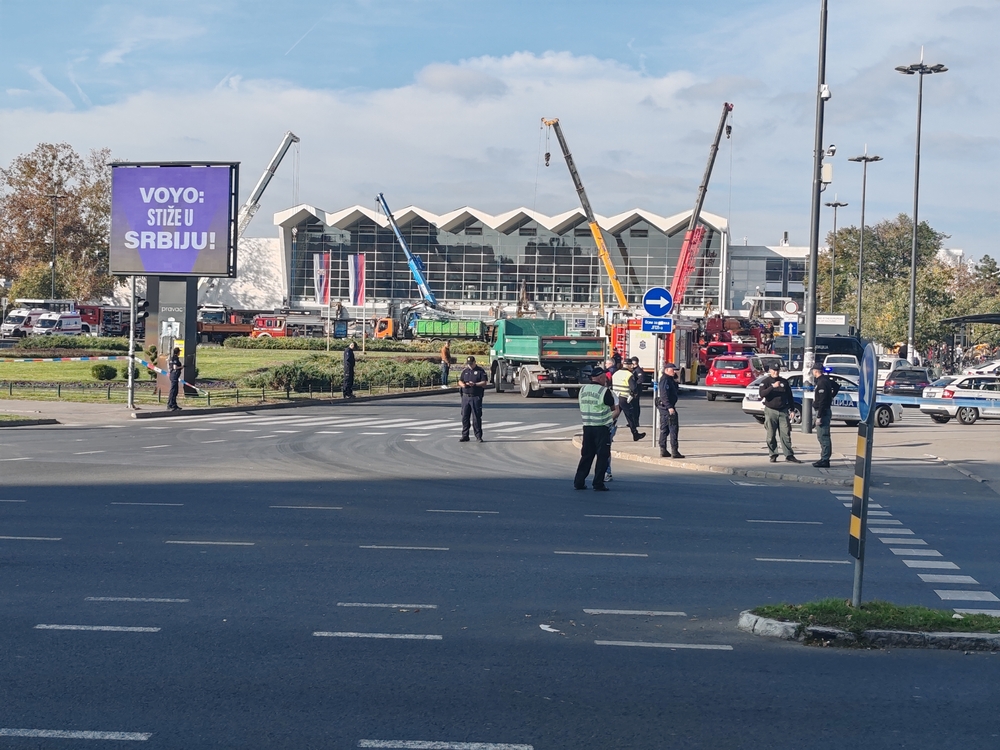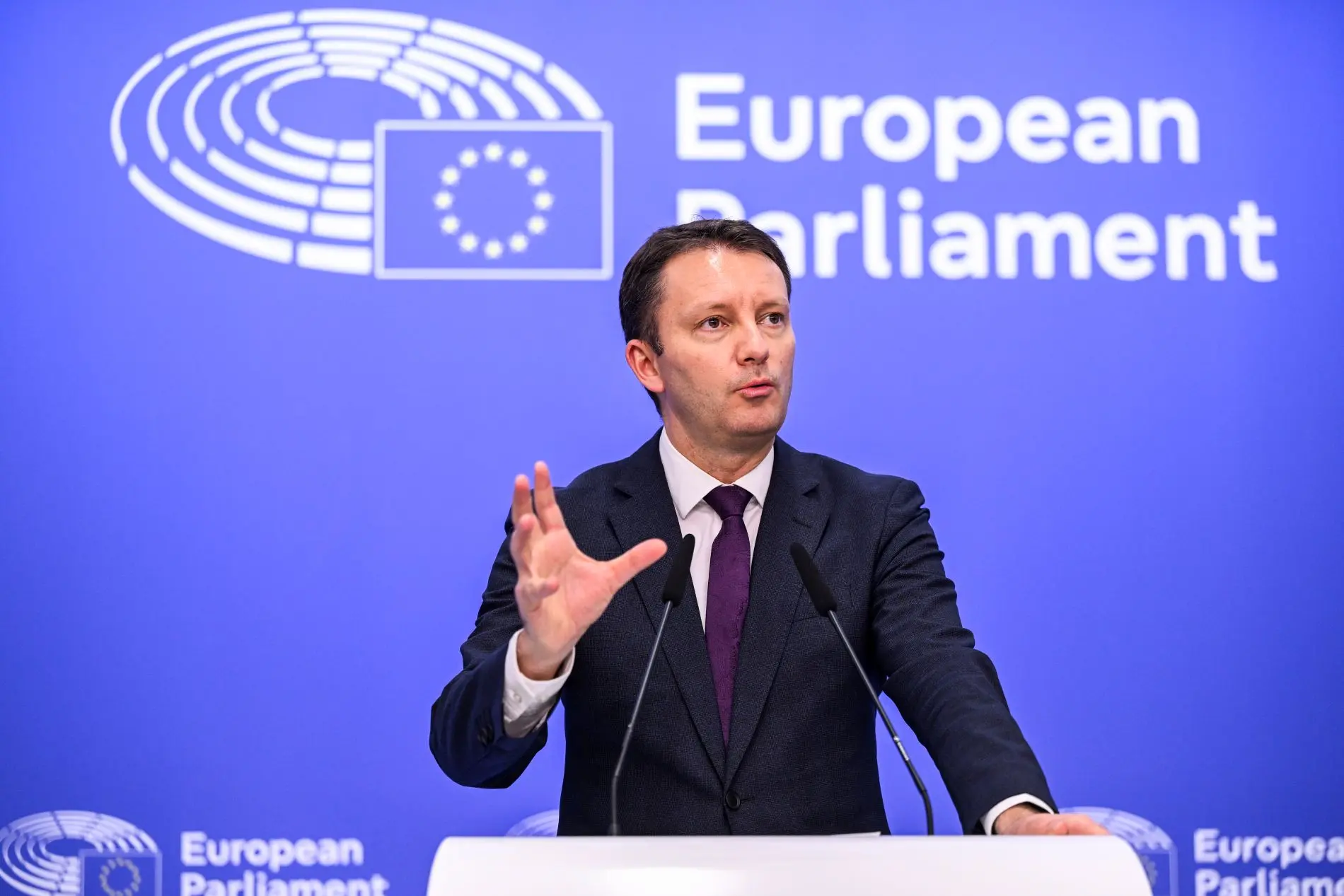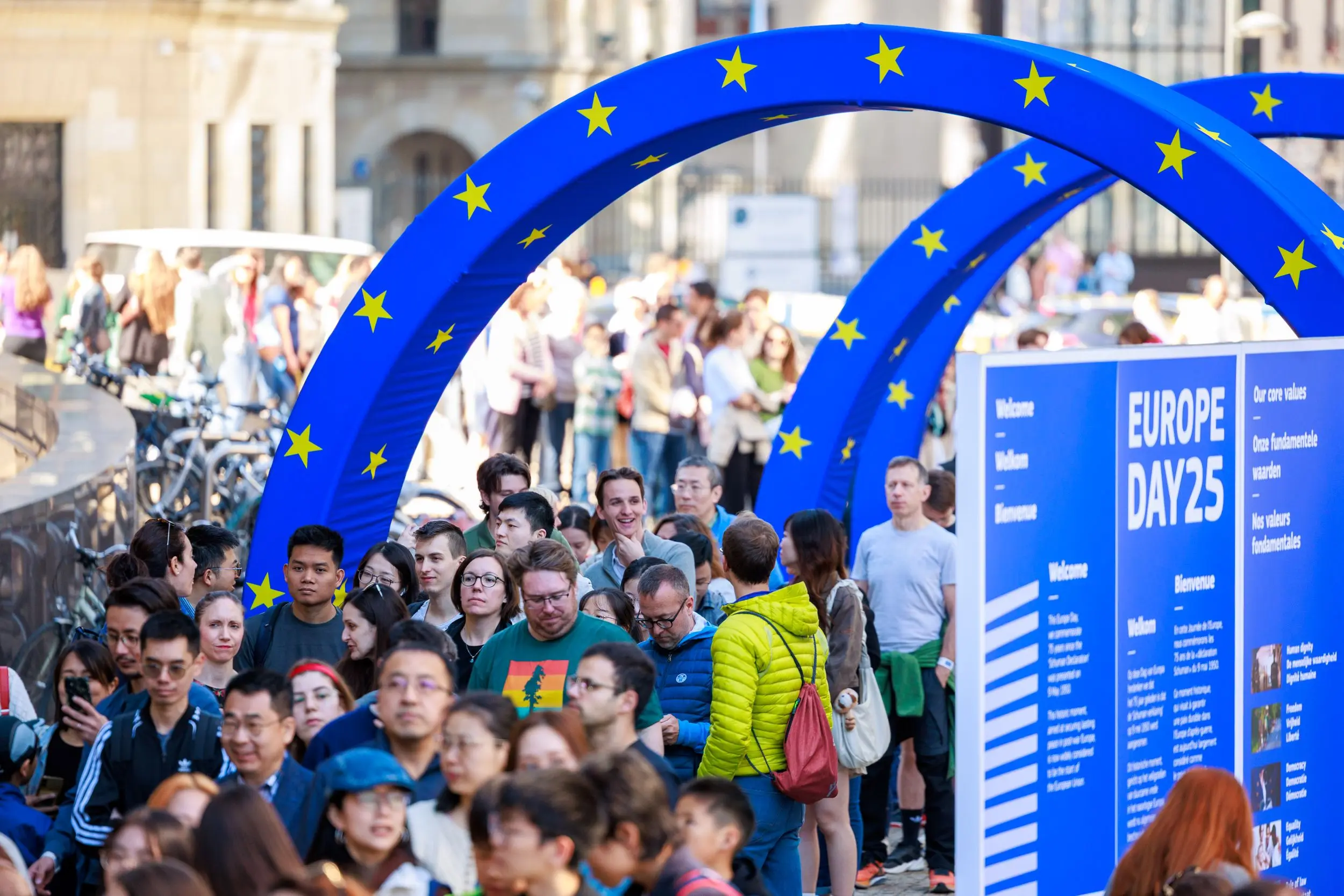Ponikve, together all is possible
We went to explore how a multi-service utility company works on the island of Krk. And to understand how it manages to attract and invest European resources, to face the challenges of an island with a high tourist attraction, towards sustainable development
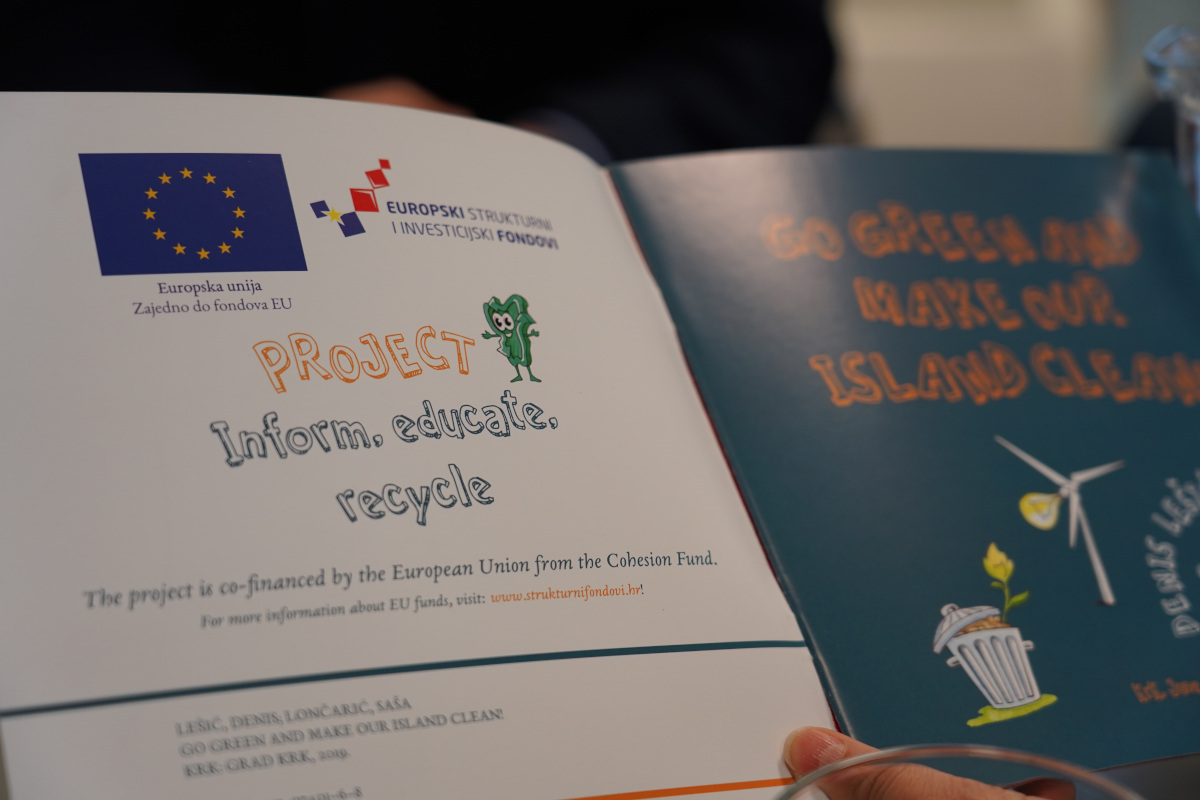
Ponikve-together-all-is-possible
Project brochure created by Ponikve – photo Davide Sighele
On the island of Krk, in the north of the Adriatic, the municipalities have joined in a municipal company, Ponikve, which manages waste collection, sewage, water mains, and partly the production of electricity. And which has become a fundamental point of reference for attracting and investing European resources. We met Dejan Kosić, technical director of the municipal company.
“We collaborate with many Italian partners, also for European projects (Horizon, Interreg, etc.). For example, I recently spoke to one of my Italian partners about the possibility of doing new Interreg projects between Italy and Croatia for which a new European call. Then in the future we would also like to involve other Eastern European countries, such as Macedonia and Kosovo", Kosić wastes no time. In his offices in a building on the outskirts of the town of Krk, lots of space around and the colours of the sea that can be glimpsed on the horizon, he already tells us about his plans for the future.
Let’s go back for a moment, you have just completed an important project in the context of the Interreg Italy-Croatia programme…
Yes, the DEEP-SEA project, completed at the end of 2022. It allowed us to carry out some pilot programmes: one here on the island of Krk, another further south, on the island of Solta (Šolta), then yet another in Italy, in the province of Foggia, and one in Trieste. We created a micro-grid system with photovoltaic panels and batteries, and with charging stations for electric vehicles and boats. They are the first electric boat stations in Croatia.
We also created a charging station for electric bikes and scooters. The idea was to allow not only tourists, but all people who come to the island with an electric car, to use electric bikes and scooters for free while they wait for their vehicle to recharge. We also involved various local companies operating in the tourism sector, including some travel agencies, developing an offer between restaurants and various sites of interest for those wishing to get to know our island while waiting for their car or electric boat to be recharged.
As a company, how do you get involved in these European projects, such as Interreg for example? Do you receive proposals or do you apply yourself?
Sometimes we apply, others we are offered a collaboration, as in the case of the project we mentioned, in which we were offered to replace a partner who had left the project. As regards a Horizon 2020 project, which we will perhaps discuss later, we were the ones who proposed the idea.
We are currently developing a new idea that we would like to propose within the Italy-Croatia Interreg. The idea is to probe for the presence of plastic and other waste in the sea, specifically in a bay near Baška, the so-called Puntarska Draga where there is also a docking point for boats (Marina Punat ), and in three other locations: in the Venice Lagoon, in one locality in southern Italy, and in one in southern Croatia. Once we have established the amount of underwater debris that exists, we will try to fix the problem.
On the Italian side we plan to clean up the seabed with a robot with a GPS system, on the Croatian side instead we have another technology, equally modern, which allows submarine waste to be transformed into hydrogen, which can then be used to produce electricity, in turn used to power those robots that clean the seabed. This is an idea that we are currently developing and we hope to be able to propose it.
So, you have competent staff for European calls for tenders… is it now a normal thing for you to deal with them?
Yes, certainly. Several years ago, immediately after Croatia joined the EU , we did a project management course for European projects. There were sixteen of us: in addition to the employees of our company, there was also an employee of one of the municipalities of the island. There are seven municipalities on the island, we have close relationships with them because we are a municipal company and we also collaborate on European projects.
Is this competence bringing relevant resources for the development of the territory?
Yes, in my opinion. We are engaged in European projects in various fields.
What was important for the development of Krk?
First of all, the construction of the bridge connecting to the mainland, in 1980. After the construction of the bridge, the situation changed completely. For example, in the 1950s and 1960s, my parents had gone to work in Rijeka because life was not so good here on the island. In that period many inhabitants emigrated abroad, to America, Italy, I also have many relatives in Germany. Then with the bridge came a positive turning point not only as regards tourism, but the development of the island in general. Well, I’m back on the island too. And then came membership of the European Union. I think we can be satisfied with the EU, we have so many new possibilities, we can develop ideas, get in touch with other European cities and countries.
It is certainly not to be taken for granted that you have succeeded in attracting these European resources. In some relatively wealthy countries, local authorities, having not needed particular resources in the past, have not developed great internal skills on European planning … they were not needed, and now many opportunities are being lost….
It is also important to network, to collaborate. Here in Krk, politicians have managed to find harmony on many occasions, pursuing a common policy. I believe that this aspect has contributed the most to the development of the island. Because we are aware of living on an island, of being islanders. Yes, we have the bridge, but we are still an island. So we have to think about what’s best for the island, for us, for our children, for the future. If, on the other hand, we reason on the basis of belonging to one political party or the other, then we will get nowhere.
Then you recently worked on a Horizon 2020 project…
It is a research project (InNoPlastic ) of which we have devised a part, even if we are not the lead institution. We started the idea of how to clean the beaches of the island. A few years ago we made a project called Plava Vreća (Blue Bag ). We asked ourselves: how can we clean all the beaches on the island? Because we, as a municipal company, usually only clean the municipal beaches, not the remote and isolated ones, perhaps only reachable by boat. Therefore, we decided to distribute bags to people who frequent these beaches (tourists, fishermen, boat owners) to encourage them to collect the waste found on the beach. We all know that we cannot leave garbage on the beaches, but no one feels obliged to collect waste brought by the sea or the wind. We also tried to explain to people that the waste that ends up on the beach is already cleaned in a certain sense by the effect of the salt sea and sun, so don’t be afraid to collect it. And then you just need to dedicate five minutes of your time to fill a bag with waste. We calculated that if every visitor or fisherman were to fill even one bag a year, the beaches would be clean. We also organised a contest for the best story or photography, rewarding the winners with a weekend in one of the hotels on the island. We could not reward all the participants in the initiative, but for everyone the greatest reward is clean beaches.
This project went on for a few years, then we thought about expanding it using new technologies. The idea was to use a robot that "sunbathes" during the day, thus recharging the batteries, then at night, when there is no one on the beach, collects the waste. We contacted a Croatian company that we believed capable of creating one with these characteristics, and indeed they are developing it, they are almost finished.
Then we thought of reusing the waste collected on the beaches, transforming it into products that can be used on the beach. The initial idea was to create deck chairs for the beach, but a large 3D printer was needed which cost too much. So, we bought a smaller printer and then figured out what we could create. Someone suggested we make cones for ash and butts – which we already distribute to tourists – but we wanted it to be a product for everyone, not just for smokers. So we came up with the idea of creating sunglasses.
Then we realised that there are many polymers on the beaches: polypropylene, polyethylene (both low and high density), PET, and a little polystyrene. We use polypropylene to produce recycling bins. I recently went to the Caribbean, to the island of Saint-Martin, Dutch territory, to meet one of the project partners, so I brought with me the first model of a wastebasket made from recycled plastic. In the end they gave it to the royal family who were visiting, also to show what can be produced from waste. That was the prototype. However, the first 650 pieces produced by an Italian company, Sartori Ambiente , should arrive shortly. They are very skilled, and above all open to collaborating, because few companies are willing to experiment by participating in a research project. These baskets are intended for schools and nurseries on the island.
Then we made baskets with high-density polyethylene, for now only in 50% recycled plastic, but we hope to reach 100%. This product is also intended for schools, in particular for olive harvesting – every school on the island has an olive grove – but it can also be used for waste collection. Instead, we make the blue bags we mentioned earlier with low-intensity polyethylene. We give bags of different colours to people who have a boat so that they can separate waste directly on the boat.
How many years has there been separate waste collection on the island?
We started in 2005 and then in 2014, when we reached almost 50%, we realised we had to go one step further, so we introduced door-to-door collection.
Can you explain, from the point of view of someone who works in a municipal company, what the biggest problems are of such a significant tourist impact on the island? Because this is a much more difficult situation to manage than in other territories. Tourists bring resources, but also problems…
The island of Krk is among the largest Croatian islands, it has 21,000 inhabitants, but in summer we have 150,000 people, so seven times more. For us this is the greatest difficulty, because we need to supply water to all these people. Then if during the other seasons rainfall is scarce, we are unable to recover that water. Wastewater is also a problem, which is why we are now carrying out a major sewage project. In summer there are many people, and consequently also large quantities of waste water, in winter much less. Therefore, in some parts of the network we have to install small systems to balance the flow rates.
Then there is the separate collection. There are about 30,000 houses on the island, of which only a third are inhabited all year round, the rest is made of houses that are rented out. Therefore, it is not easy to manage the huge influx of people during the summer, you need adequate infrastructure, human resources… When there are 150,000 people on the island it is as if we were the third largest city in Croatia. Then in winter 20,000 inhabitants remain on the island and everything changes.
Are your resources predominantly municipal resources?
Yes, the resources come from municipal taxes. It is true that 20,000 inhabitants pay for 150,000 people, but this is not a particularly problematic aspect because those who have a large house and rent it to tourists pay more than those who have a smaller house only for their own use. So, it’s a fair system, nobody complains.
Then with respect to separate waste collection, there is also the cultural aspect. Tourists come from all over the world, there are those who are used to recycling, those who are not…
I don’t have certain data, but I think that our tourists are mostly German, followed by the Austrians, then once upon a time many Italians also came, although after the 2008 crisis less and less. Slovenians also make up a large part of the tourists who visit the island of Krk. They are often accustomed to the concept of recycling. It must also be said that the tourist flow on the island of Krk is a third of the flow in Kvarner, or 8% of the national total (taking into consideration both second homes and accommodation facilities) and about 5.6% (considering accommodation facilities only).
Your company deals with sewage, water, and then what?
Also waste and electricity. We started dealing with electricity (public lighting, charging stations for electric cars, etc.) in 2014, then this year the branch of our company dedicated to the energy sector became a reality in its own right.
Does it provide services directly to private individuals?
No. Our company consists of two units: Ponikve Voda (deals with water) and Ponikve Eko (waste and sewage). Then there is this new company Smart Island Krk . A peculiarity of Ponikve Eko, which employs almost half of the company’s staff (120 of the 250 employees), is that we ourselves produce enough energy for our activities. In fact, we produce excess energy, thanks to photovoltaic panels installed on the roof of a waste separation and selection plant in Treskavac. One part was installed in 2012 (thanks to a state-guaranteed loan) and the other in 2018.
This content is published in the context of the “Work4Future” project co-financed by the European Union (EU). The EU is in no way responsible for the information or views expressed within the framework of the project. The responsibility for the contents lies solely with OBC Transeuropa. Go to the “Work4Future“
Tag: Work for Future
Ponikve, together all is possible
We went to explore how a multi-service utility company works on the island of Krk. And to understand how it manages to attract and invest European resources, to face the challenges of an island with a high tourist attraction, towards sustainable development

Ponikve-together-all-is-possible
Project brochure created by Ponikve – photo Davide Sighele
On the island of Krk, in the north of the Adriatic, the municipalities have joined in a municipal company, Ponikve, which manages waste collection, sewage, water mains, and partly the production of electricity. And which has become a fundamental point of reference for attracting and investing European resources. We met Dejan Kosić, technical director of the municipal company.
“We collaborate with many Italian partners, also for European projects (Horizon, Interreg, etc.). For example, I recently spoke to one of my Italian partners about the possibility of doing new Interreg projects between Italy and Croatia for which a new European call. Then in the future we would also like to involve other Eastern European countries, such as Macedonia and Kosovo", Kosić wastes no time. In his offices in a building on the outskirts of the town of Krk, lots of space around and the colours of the sea that can be glimpsed on the horizon, he already tells us about his plans for the future.
Let’s go back for a moment, you have just completed an important project in the context of the Interreg Italy-Croatia programme…
Yes, the DEEP-SEA project, completed at the end of 2022. It allowed us to carry out some pilot programmes: one here on the island of Krk, another further south, on the island of Solta (Šolta), then yet another in Italy, in the province of Foggia, and one in Trieste. We created a micro-grid system with photovoltaic panels and batteries, and with charging stations for electric vehicles and boats. They are the first electric boat stations in Croatia.
We also created a charging station for electric bikes and scooters. The idea was to allow not only tourists, but all people who come to the island with an electric car, to use electric bikes and scooters for free while they wait for their vehicle to recharge. We also involved various local companies operating in the tourism sector, including some travel agencies, developing an offer between restaurants and various sites of interest for those wishing to get to know our island while waiting for their car or electric boat to be recharged.
As a company, how do you get involved in these European projects, such as Interreg for example? Do you receive proposals or do you apply yourself?
Sometimes we apply, others we are offered a collaboration, as in the case of the project we mentioned, in which we were offered to replace a partner who had left the project. As regards a Horizon 2020 project, which we will perhaps discuss later, we were the ones who proposed the idea.
We are currently developing a new idea that we would like to propose within the Italy-Croatia Interreg. The idea is to probe for the presence of plastic and other waste in the sea, specifically in a bay near Baška, the so-called Puntarska Draga where there is also a docking point for boats (Marina Punat ), and in three other locations: in the Venice Lagoon, in one locality in southern Italy, and in one in southern Croatia. Once we have established the amount of underwater debris that exists, we will try to fix the problem.
On the Italian side we plan to clean up the seabed with a robot with a GPS system, on the Croatian side instead we have another technology, equally modern, which allows submarine waste to be transformed into hydrogen, which can then be used to produce electricity, in turn used to power those robots that clean the seabed. This is an idea that we are currently developing and we hope to be able to propose it.
So, you have competent staff for European calls for tenders… is it now a normal thing for you to deal with them?
Yes, certainly. Several years ago, immediately after Croatia joined the EU , we did a project management course for European projects. There were sixteen of us: in addition to the employees of our company, there was also an employee of one of the municipalities of the island. There are seven municipalities on the island, we have close relationships with them because we are a municipal company and we also collaborate on European projects.
Is this competence bringing relevant resources for the development of the territory?
Yes, in my opinion. We are engaged in European projects in various fields.
What was important for the development of Krk?
First of all, the construction of the bridge connecting to the mainland, in 1980. After the construction of the bridge, the situation changed completely. For example, in the 1950s and 1960s, my parents had gone to work in Rijeka because life was not so good here on the island. In that period many inhabitants emigrated abroad, to America, Italy, I also have many relatives in Germany. Then with the bridge came a positive turning point not only as regards tourism, but the development of the island in general. Well, I’m back on the island too. And then came membership of the European Union. I think we can be satisfied with the EU, we have so many new possibilities, we can develop ideas, get in touch with other European cities and countries.
It is certainly not to be taken for granted that you have succeeded in attracting these European resources. In some relatively wealthy countries, local authorities, having not needed particular resources in the past, have not developed great internal skills on European planning … they were not needed, and now many opportunities are being lost….
It is also important to network, to collaborate. Here in Krk, politicians have managed to find harmony on many occasions, pursuing a common policy. I believe that this aspect has contributed the most to the development of the island. Because we are aware of living on an island, of being islanders. Yes, we have the bridge, but we are still an island. So we have to think about what’s best for the island, for us, for our children, for the future. If, on the other hand, we reason on the basis of belonging to one political party or the other, then we will get nowhere.
Then you recently worked on a Horizon 2020 project…
It is a research project (InNoPlastic ) of which we have devised a part, even if we are not the lead institution. We started the idea of how to clean the beaches of the island. A few years ago we made a project called Plava Vreća (Blue Bag ). We asked ourselves: how can we clean all the beaches on the island? Because we, as a municipal company, usually only clean the municipal beaches, not the remote and isolated ones, perhaps only reachable by boat. Therefore, we decided to distribute bags to people who frequent these beaches (tourists, fishermen, boat owners) to encourage them to collect the waste found on the beach. We all know that we cannot leave garbage on the beaches, but no one feels obliged to collect waste brought by the sea or the wind. We also tried to explain to people that the waste that ends up on the beach is already cleaned in a certain sense by the effect of the salt sea and sun, so don’t be afraid to collect it. And then you just need to dedicate five minutes of your time to fill a bag with waste. We calculated that if every visitor or fisherman were to fill even one bag a year, the beaches would be clean. We also organised a contest for the best story or photography, rewarding the winners with a weekend in one of the hotels on the island. We could not reward all the participants in the initiative, but for everyone the greatest reward is clean beaches.
This project went on for a few years, then we thought about expanding it using new technologies. The idea was to use a robot that "sunbathes" during the day, thus recharging the batteries, then at night, when there is no one on the beach, collects the waste. We contacted a Croatian company that we believed capable of creating one with these characteristics, and indeed they are developing it, they are almost finished.
Then we thought of reusing the waste collected on the beaches, transforming it into products that can be used on the beach. The initial idea was to create deck chairs for the beach, but a large 3D printer was needed which cost too much. So, we bought a smaller printer and then figured out what we could create. Someone suggested we make cones for ash and butts – which we already distribute to tourists – but we wanted it to be a product for everyone, not just for smokers. So we came up with the idea of creating sunglasses.
Then we realised that there are many polymers on the beaches: polypropylene, polyethylene (both low and high density), PET, and a little polystyrene. We use polypropylene to produce recycling bins. I recently went to the Caribbean, to the island of Saint-Martin, Dutch territory, to meet one of the project partners, so I brought with me the first model of a wastebasket made from recycled plastic. In the end they gave it to the royal family who were visiting, also to show what can be produced from waste. That was the prototype. However, the first 650 pieces produced by an Italian company, Sartori Ambiente , should arrive shortly. They are very skilled, and above all open to collaborating, because few companies are willing to experiment by participating in a research project. These baskets are intended for schools and nurseries on the island.
Then we made baskets with high-density polyethylene, for now only in 50% recycled plastic, but we hope to reach 100%. This product is also intended for schools, in particular for olive harvesting – every school on the island has an olive grove – but it can also be used for waste collection. Instead, we make the blue bags we mentioned earlier with low-intensity polyethylene. We give bags of different colours to people who have a boat so that they can separate waste directly on the boat.
How many years has there been separate waste collection on the island?
We started in 2005 and then in 2014, when we reached almost 50%, we realised we had to go one step further, so we introduced door-to-door collection.
Can you explain, from the point of view of someone who works in a municipal company, what the biggest problems are of such a significant tourist impact on the island? Because this is a much more difficult situation to manage than in other territories. Tourists bring resources, but also problems…
The island of Krk is among the largest Croatian islands, it has 21,000 inhabitants, but in summer we have 150,000 people, so seven times more. For us this is the greatest difficulty, because we need to supply water to all these people. Then if during the other seasons rainfall is scarce, we are unable to recover that water. Wastewater is also a problem, which is why we are now carrying out a major sewage project. In summer there are many people, and consequently also large quantities of waste water, in winter much less. Therefore, in some parts of the network we have to install small systems to balance the flow rates.
Then there is the separate collection. There are about 30,000 houses on the island, of which only a third are inhabited all year round, the rest is made of houses that are rented out. Therefore, it is not easy to manage the huge influx of people during the summer, you need adequate infrastructure, human resources… When there are 150,000 people on the island it is as if we were the third largest city in Croatia. Then in winter 20,000 inhabitants remain on the island and everything changes.
Are your resources predominantly municipal resources?
Yes, the resources come from municipal taxes. It is true that 20,000 inhabitants pay for 150,000 people, but this is not a particularly problematic aspect because those who have a large house and rent it to tourists pay more than those who have a smaller house only for their own use. So, it’s a fair system, nobody complains.
Then with respect to separate waste collection, there is also the cultural aspect. Tourists come from all over the world, there are those who are used to recycling, those who are not…
I don’t have certain data, but I think that our tourists are mostly German, followed by the Austrians, then once upon a time many Italians also came, although after the 2008 crisis less and less. Slovenians also make up a large part of the tourists who visit the island of Krk. They are often accustomed to the concept of recycling. It must also be said that the tourist flow on the island of Krk is a third of the flow in Kvarner, or 8% of the national total (taking into consideration both second homes and accommodation facilities) and about 5.6% (considering accommodation facilities only).
Your company deals with sewage, water, and then what?
Also waste and electricity. We started dealing with electricity (public lighting, charging stations for electric cars, etc.) in 2014, then this year the branch of our company dedicated to the energy sector became a reality in its own right.
Does it provide services directly to private individuals?
No. Our company consists of two units: Ponikve Voda (deals with water) and Ponikve Eko (waste and sewage). Then there is this new company Smart Island Krk . A peculiarity of Ponikve Eko, which employs almost half of the company’s staff (120 of the 250 employees), is that we ourselves produce enough energy for our activities. In fact, we produce excess energy, thanks to photovoltaic panels installed on the roof of a waste separation and selection plant in Treskavac. One part was installed in 2012 (thanks to a state-guaranteed loan) and the other in 2018.
This content is published in the context of the “Work4Future” project co-financed by the European Union (EU). The EU is in no way responsible for the information or views expressed within the framework of the project. The responsibility for the contents lies solely with OBC Transeuropa. Go to the “Work4Future“
Tag: Work for Future

